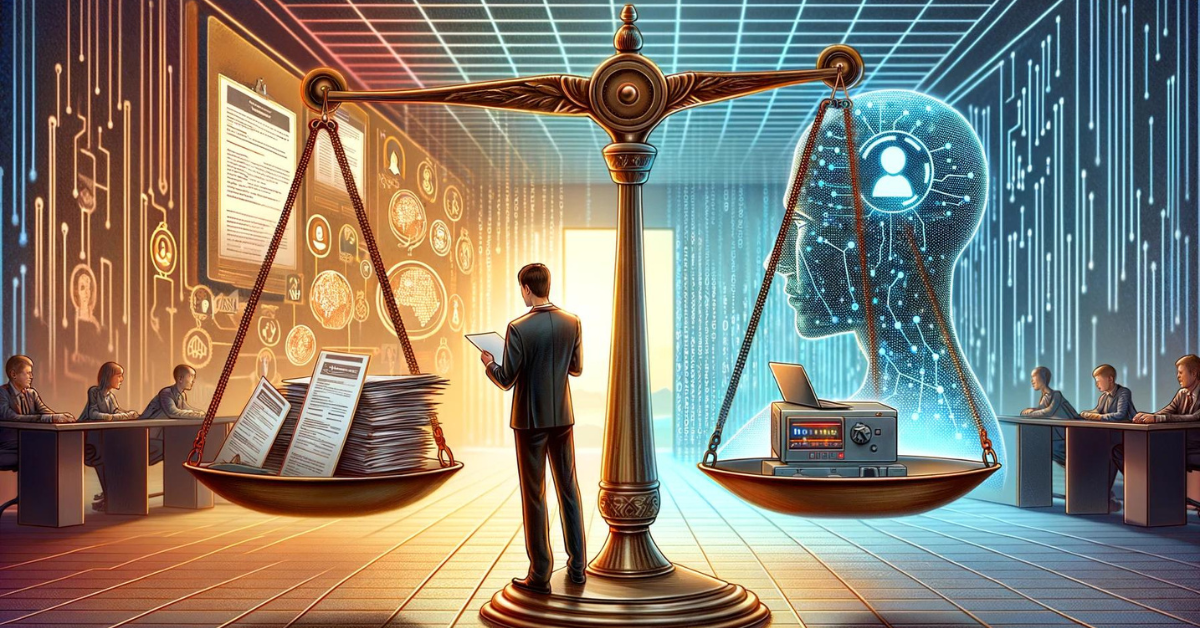The allure of AI in recruitment is undeniable. Employers are drawn to the promise of reduced time and costs through technologies like one-way video interviews, CV screeners, and digital monitoring. However, the practical outcomes of these tools are increasingly under scrutiny. Hilke Schellmann’s experiments with myInterview tool raise serious doubts about their reliability.
The underlying issues
The foundation of many AI recruitment tools is fraught with pseudoscience and discrimination risks. Schellmann’s findings, as highlighted in “The Algorithm,” reveal a troubling reliance on dubious metrics such as voice intonation and facial expressions. These criteria, poorly linked to job performance, often encode biases into the hiring process. Furthermore, the opaque nature of these AI systems, where even the vendors lack full understanding of their workings, exacerbates the issue. This black box scenario makes it nearly impossible to ensure fairness and effectiveness.
Impact on diversity & workplace fairness
AI’s promise to streamline recruitment also harbors the risk of magnifying biases. For instance, a tool that preferred baseball over softball in CVs unknowingly favored male candidates, illustrating how AI can perpetuate stereotypes. Moreover, Schellmann’s narrative includes the challenges faced by a black female software developer, who encountered barriers in the job market possibly due to AI screening. These anecdotes underscore the pressing need for skepticism and regulation in the deployment of AI recruitment tools.
The balance of power
While AI recruitment tools present a futuristic approach to hiring, their current state leaves much to be desired. The balance between efficiency and fairness is yet to be struck, with instances of bias and ineffectiveness calling into question their widespread adoption. Schellmann advocates for a cautious approach, emphasizing the importance of human oversight and regulatory checks to ensure that these technologies do more good than harm.
Our view on AI recruitment tools at PL Talents
The team at PL Talents has always believed in person-centered approach when it comes to recruitment. The reason it works long-term is two-fold. One – a lot of candidates are very good at passing the initial barriers to entry, by knowing what to put on their CV and how to answer the questions so the algorithm favours them. However, these are not the “Top Talent” that companies want, that can make superstar team members in the future. To spot such candidates you still need a human touch.
The basic level AI tools that filter through candidates based on some “must haves” save a lot of time. However, the automated systems that simplify the process further are still lagging behind and can lead to the company missing out on the right candidate because of an AI error. For this reason we recommend working with the agency that puts the work in and explores the hiring pool in detail.
In conclusion
The debate around AI in recruitment is complex, embodying the trade-offs between efficiency and ethical considerations, and as a result its effectiveness. Schellmann’s experiences and investigations urge a reevaluation of how these tools are integrated into hiring practices. While the quest for innovation in recruitment is commendable, it should not come at the cost of fairness and transparency. As AI continues to evolve, so too must our vigilance in ensuring it serves to enhance, rather than undermine, the recruitment process.
—
Expanding and looking for your next hire in data or software? Get in touch with one of the PL Talents’ experts – we are the number one tech recruitment specialist in Germany.

